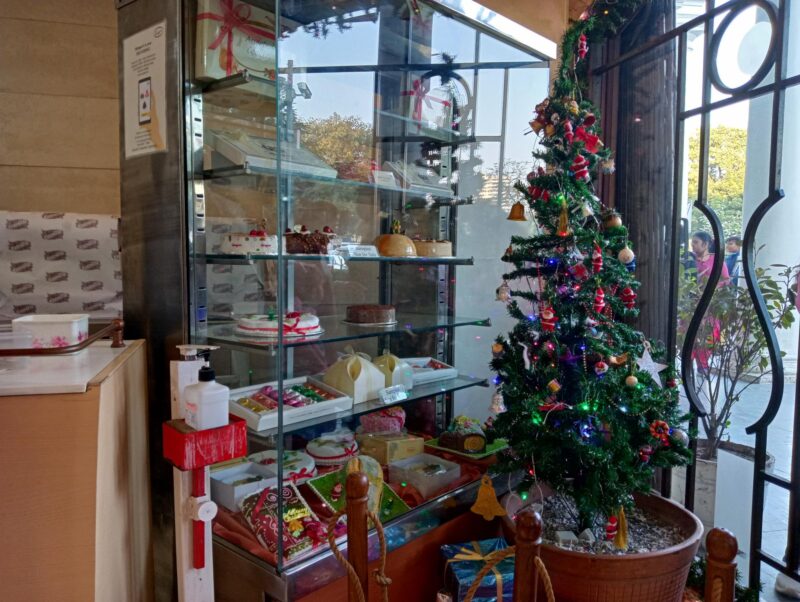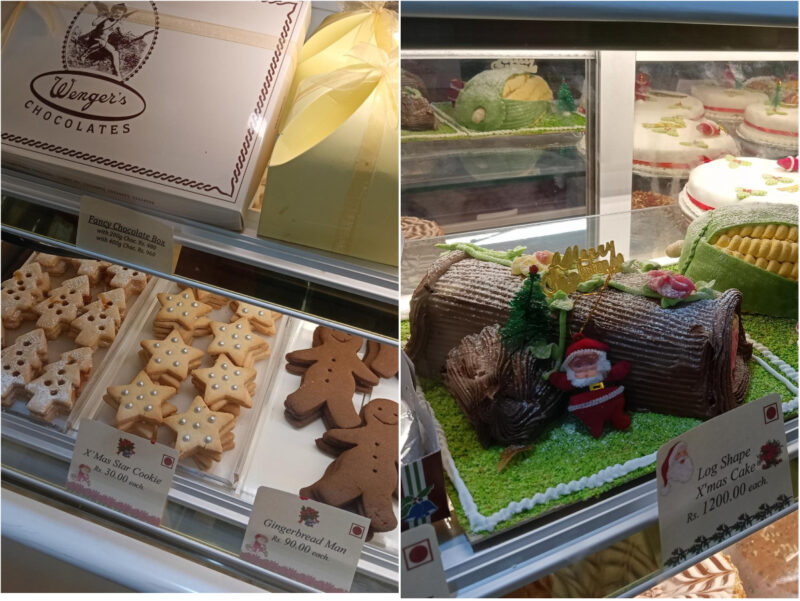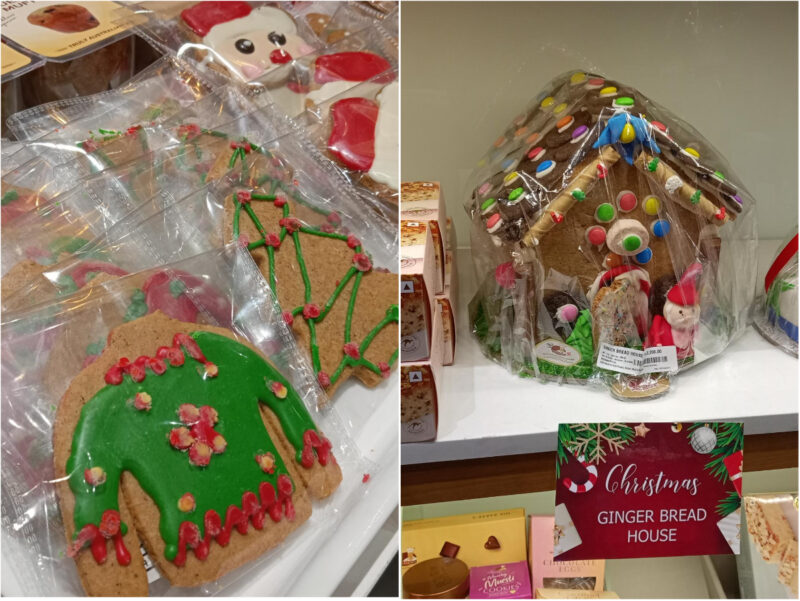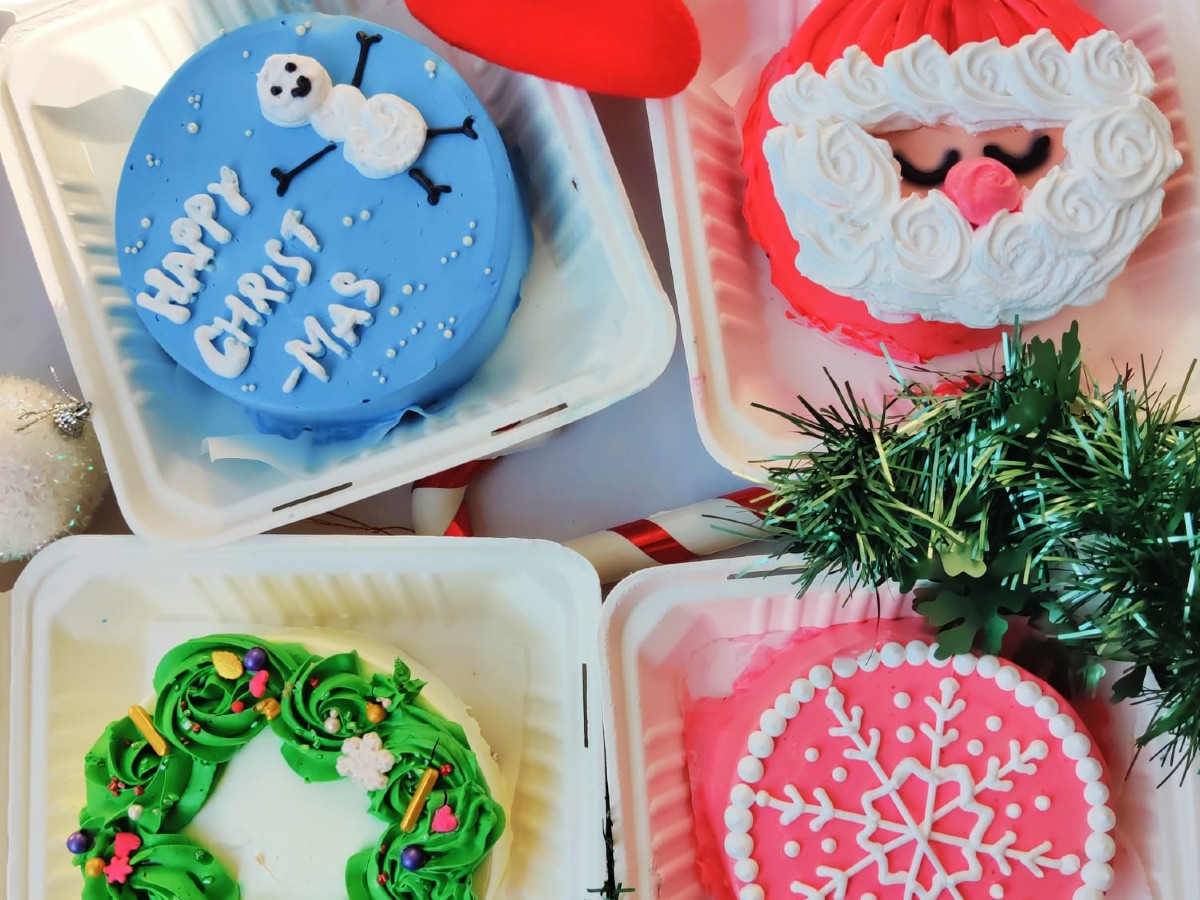In the weeks preceding Christmas, the aroma of cakes fills the air, and brightly decorated Christmas trees become a common sight.
Traditionally, for Christians, the weeks leading up to Christmas is a busy time in the kitchen and the yuletide spirit can be felt in the kitchen long before it spills into the other corners of the home. Even though less than 3% of the Indian population follows Christianity, a lot of Indians of other faiths too celebrate the festival in their own ways.
Usually, the best quality dry fruits and nuts are sourced from local vendors and soaked in rum. But in India, eggless Christmas cakes, alcohol-free cakes, vegan cakes are equally popular. Christmas cake, in all its forms, embodies the warmth of the big day.
Also read: Not a merry Christmas
In Delhi, demand for Christmas cakes shoots up at this time and its oldest bakeries as well as many local grocery shops become the centre of attraction for spirited customers.
For the last 96 years, Delhiites have been thronging Wenger’s — one of its oldest bakeries looking for star cookies, plum and dry fruit cakes besides colourful Christmas candies.
“Our standard items have been consistent for almost a decade now. We have added a few items, but the menu has largely remained the same,” says Aman Tandon, the owner of Wenger’s.
Wenger’s serves a range of Swiss-style patisserie and international snacks. As December arrives, it remains jam-packed with its loyal consumers, many of who have been frequenting it for decades.

In fact, many of the bakers have stayed at Wenger’s for over 40 years folding one batter to another and bringing to the table a spread of cakes and cookies. But during Christmas, they are loaded with work.
“We start our Christmas menu from December first week and demand for this menu remains till January first week. Basically, for a period of 5 weeks. Our extent of love for our Christmas cakes is such that we cannot identify which is the most in demand,” says Aman.
Inside the racks, there are colourful cookies and reindeer-themed cupcakes and other bakers’ items. Santa cakes and cookies have had their own glorious space for all the nine decades. But there are items that have been added recently and one such is gingerbread.
“Earlier, we didn’t have gingerbread because people never looked for it. But as awareness about Christmas grew, its demand poured in. Today, gingerbread is one of the items that the young people want to buy from us so we introduced it. Another one is the Hazelnut flavour in cakes. That is also an addition,” he says.

All our items sell like hot cakes, he adds. However, the plum cake iced with green and red Christmas colours shines bright.
“We maintain our quality and keep the prices reasonable as much as possible because everyone deserves a slice of a good cake, be it a student or an entrepreneur,” says Aman.
Few lanes away, Nik Baker’s is slowly gaining popularity among the youth. Here, unsurprisingly, Christmas cakes have taken over the menu.
“We have Christmas hampers that have been carefully curated for our customers. For the season, we have introduced different kinds of cookies that are usually in demand,” says the manager.
However, the demand for Christmas cakes don’t last for more than two weeks here. “Come December 26 and all of the Christmas goodies are over,” he says.
Interestingly, the café-cum-bakery’s top item, protein shake, gains steam during this season. “Maybe people want to compensate for all the unhealthy baked items with this protein shake. It sells all round the year, but its demand increases around this time,” he adds.

At Shahpur Jat, Shruti’s bakery ‘The Whiskology’ pleases its customers with customised cakes in many forms. Sometimes, it is a cupcake or a whole one and at other times it is a bento cake, which is a little cake perfect for individual serving.
Bento box cakes are adorable minimalist Korean cakes that have taken the internet by storm.
Since the Hallyu wave, Indians have picked up this cake trend and have started to bake their own bento cake box.
Today, those are most in demand at The Whiskology.
“We are selling around 20-30 Christmas themed cakes a day and have received around 200 orders for December 25,” says Shruti, who started her bakery in 2019 and initially incurred losses due to the pandemic. But her business picked pace soon after the first phase of Covid-induced lockdown was over.
“People are really attracted to bento cakes nowadays so we deliver them what they want,” she says.
While Christmas cakes traditionally consist of rum, the demand for it is slower in Delhi.
“Here, people want cakes that are free of alcohol and eggs because they want to enjoy them with their families. Therefore, we have a wide variety of rum-free Christmas plum cakes that our customers can consume without any inhibition,” she says, adding that apart from the cakes already mentioned, banana bread and its variety are also picking up.
Due to the demand for plum cakes, the sale of dry fruits has shot up in places like Chandni Chowk’s Khari Baoli and INA market.
“Business does not slow down for dry fruits after Diwali because Christmas exists. People of all faiths like cakes so they want to either buy them or make one themselves. Either way, it is our gain,” says Sunil, a dry fruit seller.
“We sell at least five to 10 kilos of cherries and dry fruits a day,” he adds.
Meanwhile, at INA market, along with the dry fruits, locally made plum cakes also are in demand.
“Every day, at least 15-20 such cakes are sold. And this was when Christmas week hadn’t even arrived. The sale rises to more than 30 such cakes from December 22-25,” says Anuj, who runs a grocery store at the INA market.
The story of the plum cake began in medieval England, where it was a popular tradition to observe a period of self-denial, fasting and abstinence from every kind of indulgence in the weeks leading to Christmas. The abstinence and occasional fasting was supposed to prepare the body for the overindulgence and excesses of Christmas.
According to custom, on the eve of Christmas, a rich porridge was cooked and eaten to “line the stomach” for the upcoming feast. The porridge, said to have been made with oats, dried fruits, spices, honey and sometimes even meat, can be called the progenitor of the Christmas — or plum — cake.
With the passage of time and as more ingredients made their way into the porridge, it started to resemble its current form. It is believed that sometime in the 16th century, oats was replaced with flour, and eggs and butter were also added to the mixture. (The meat had already been taken out of it and was prepared in other forms). This batter was then bound in a muslin cloth and cooked in a pot of boiling water for many hours. What came out was a heavy, dense fudge also referred to as cannon ball.
Follow us on:
Instagram: instagram.com/thepatriot_in/
Twitter: twitter.com/Patriot_Delhi
Facebook: facebook.com/Thepatriotnewsindia





